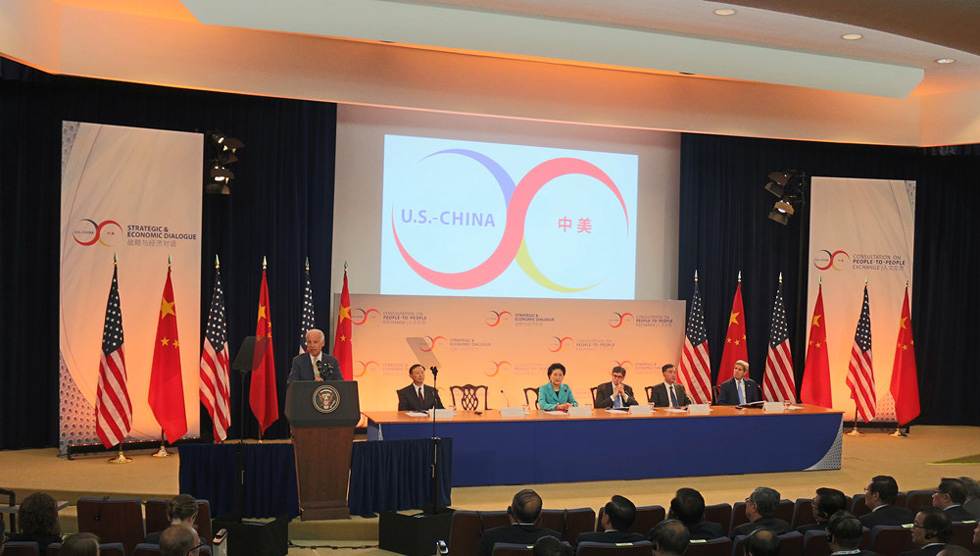Scholars optimistic about ties with US despite tension

The seventh China-US Strategic and Economic Dialogue and the sixth China-US High-Level Consultation on People-to-People Exchange were held in Washington from June 23 to 24.
The seventh China-US Strategic and Economic Dialogue and the sixth China-US High-Level Consultation on People-to-People Exchange were held in Washington from June 23 to 24. Centered on building the China-US new major-country relationship, the dialogue and consultation pave the way for Xi Jinping’s upcoming visit to the US in September.
Tao Wenzhao, a research fellow from the Institute of American Studies at the Chinese Academy of Social Sciences, voiced optimism about the future of China-US relations following their “stormy” past, saying there is no reason to take a gloomy view, because both countries have become more interdependent.
Yang Jiemian, former president of the Shanghai Institutes for International Studies, proposed looking at the bigger picture of bilateral relations. “The China-US relationship, if viewed through a microscope, is problematic anywhere and anytime. But from a long-term perspective, progress is being made as the two countries address all sorts of problems,” Yang said.
Recently, some matters beyond bilateral relations, such as the South China Sea issue, have become flashpoints for tension. The negative fallout of alleged cyber attacks has further thrust the China-US relationship into the international spotlight. In the US, grim commentary has suggested the relationship between the two countries is approaching a “critical point.”
Wu Xinbo, executive dean of the Institute of International Relations at Fudan University, said that such pessimism reflects Washington’s anxiety over the rise of China. In the midst of world multi-polarization, the US is still fantasizing about a “unipolar world” and losing confidence, Wu said, adding that it should not view itself and China through an outdated lens.
“The idea of building a new major-country relationship between China and the US is more valuable and important than ever amid the growing impact of negative factors,” said Su Ge, president of the China Institute of International Studies.
It is imperative to advance China-US relations since common interests between the two sides far outweigh disagreements, Su said.
In 2014, the trade volume between China and the US amounted to $555.1 billion, the actual stock of bilateral investment exceeded $120 billion and there were more than 4.3 million mutual visits between Chinese and Americans.
“The China-US relationship has a solid economic foundation and broad public support,” Su said.
“Whether China and the US can build a new major-country relationship depends on interaction between the two sides in the Asia-Pacific region,” Wu said.
A survey of 158 American experts specializing in China studies by the Institute of International Relations at China Foreign Affairs University found a popular belief that China and the US have embroiled themselves in a risky “tactical convergence” on Asia-Pacific regional issues, with competition on the security front intensifying.
Whether China will act upon agreed rules in the current international system or seek to establish an alternative system is a common concern for US politicians and academics. “Americans worry that China will eat the ‘lunch’ of the US, but they are unaware of the fact that the Chinese are great ‘cooks.’ China and the US can cooperate to ‘cook the best dishes’ in the world and enjoy them together,” said Ruan Zongze, executive vice-president of the China Institute of International Studies.
Chinese Foreign Minister Wang Yi has noted on many occasions that the Asia-Pacific region should serve as a test ground, not a battlefield, for building the new major-country relationship.
Mao Li is a reporter at the Chinese Social Sciences Today.

 PRINT
PRINT CLOSE
CLOSE